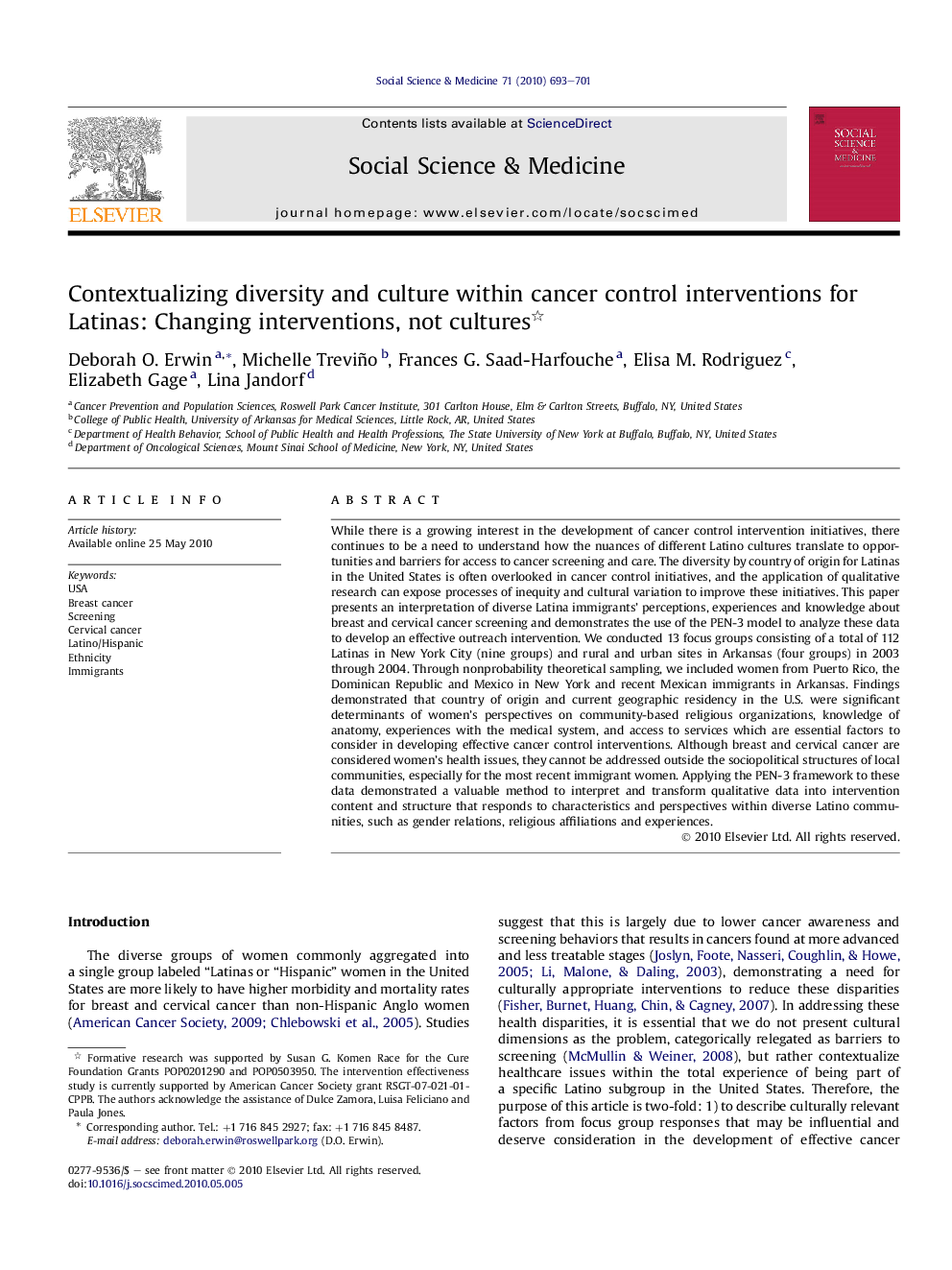| Article ID | Journal | Published Year | Pages | File Type |
|---|---|---|---|---|
| 953005 | Social Science & Medicine | 2010 | 9 Pages |
While there is a growing interest in the development of cancer control intervention initiatives, there continues to be a need to understand how the nuances of different Latino cultures translate to opportunities and barriers for access to cancer screening and care. The diversity by country of origin for Latinas in the United States is often overlooked in cancer control initiatives, and the application of qualitative research can expose processes of inequity and cultural variation to improve these initiatives. This paper presents an interpretation of diverse Latina immigrants’ perceptions, experiences and knowledge about breast and cervical cancer screening and demonstrates the use of the PEN-3 model to analyze these data to develop an effective outreach intervention. We conducted 13 focus groups consisting of a total of 112 Latinas in New York City (nine groups) and rural and urban sites in Arkansas (four groups) in 2003 through 2004. Through nonprobability theoretical sampling, we included women from Puerto Rico, the Dominican Republic and Mexico in New York and recent Mexican immigrants in Arkansas. Findings demonstrated that country of origin and current geographic residency in the U.S. were significant determinants of women’s perspectives on community-based religious organizations, knowledge of anatomy, experiences with the medical system, and access to services which are essential factors to consider in developing effective cancer control interventions. Although breast and cervical cancer are considered women’s health issues, they cannot be addressed outside the sociopolitical structures of local communities, especially for the most recent immigrant women. Applying the PEN-3 framework to these data demonstrated a valuable method to interpret and transform qualitative data into intervention content and structure that responds to characteristics and perspectives within diverse Latino communities, such as gender relations, religious affiliations and experiences.
Research highlights► Country of origin significantly alters the content needs for cancer interventions. ► The majority of all recent Latino immigrants require health programs in Spanish. ► Including men in Latina women’s health education diminishes gender inequalities. ► Mexican and rural women prefer church program sites more than Latina groups in NYC. ► The PEN-3 model can be used to develop culturally-informed health interventions.
